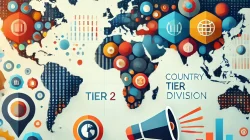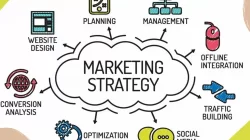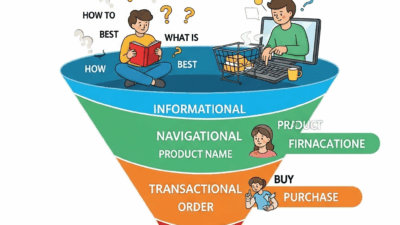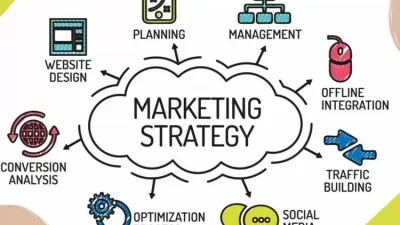What Does a Research Strategist Do in the Event and Festival Space?
A research strategist for events and festivals plays a key role in shaping everything from planning to post-event reporting. They collect and interpret data on audience preferences, market trends, venue effectiveness, and brand perception. This helps organizers not only design experiences that resonate but also prove the ROI of their efforts.
Unlike a general event planner, a research strategist delves into performance metrics and utilizes analytics platforms to inform creative and logistical decisions. From choosing the right performers or speakers to crafting experiences that align with audience expectations, they’re the data compass behind memorable events.
Why Your Event or Festival Needs a Research Strategist Now More Than Ever
With the return of large-scale events post-pandemic and skyrocketing expectations for personalized experiences, decisions backed by real insights are more critical than ever. A strategist helps reduce guesswork and minimizes costly missteps.
Festivals today compete not only on programming but also on the quality of experience, social buzz, and relevance. Without someone dedicated to interpreting industry and audience signals, organizers risk misaligning with their core attendees or wasting budget on underperforming tactics.
Key Benefits of Having a Research Strategist for Events and Festivals
Better Audience Understanding and Segmentation
A strategist starts by breaking down your audience into segments — by age, interests, past event behavior, and more. This leads to hyper-targeted marketing, tailored programming, and better sponsorship alignment.
With audience insights, you can curate speakers, performers, and experiences that align directly with what different segments care about, leading to higher satisfaction and attendance.
Enhanced Sponsor Value Through Data
Sponsors want proof of value. A strategist helps build powerful reports that show precisely how audiences engage with branded spaces, contests, or digital integrations. This boosts sponsor retention and lets you raise prices.
Using tools like geolocation heatmaps and post-event surveys, strategists quantify the reach and impact of each branded element, creating stronger post-event recaps.

How Research Strategy Impacts Pre-Event Planning
Choosing Venues and Timing with Confidence
By analyzing historical weather data, competitor schedules, and travel patterns, strategists ensure your event hits the sweet spot in terms of timing and accessibility. This reduces risk and boosts turnout.
Instead of relying on intuition, venue choices and dates are selected based on hard evidence, which increases logistical success and reduces cancellations or no-shows.
Content Strategy Based on Attendee Intent
A strategist uses surveys and trend monitoring to plan content tracks, speaker topics, and entertainment that aligns with what your audience wants. This makes your agenda more relevant and engaging.
For example, at a music festival, identifying a rising genre trend can help you book acts that spark excitement and create organic hype.
Event Marketing Performance Optimization
More intelligent Campaign Targeting and Messaging
With audience data in hand, your strategist fine-tunes ad targeting, landing page messaging, and email funnels. They know which value propositions resonate with which audience segment, and how to track conversions.
This allows you to personalize not just content, but also platform choices. Gen Z may respond better to TikTok promotions, while older attendees are more likely to be engaged through email.
Real-Time Campaign Adjustments
A strategist monitors ongoing campaign data — open rates, click-throughs, conversions — and helps your team pivot quickly. If an offer isn’t working, you’ll know before it’s too late.
This agility maximizes your ad spend and prevents waste on underperforming creatives or platforms.
Data Collection Techniques Used by Research Strategists
Pre-Event Surveys and Audience Profiling
One of the most essential tools in a strategist’s toolkit is the pre-event survey. These are distributed via email or social channels and provide baseline insights into audience expectations, motivations, and preferences.
This data helps inform the event structure, staffing needs, and even amenities such as food vendors or accessibility features.
On-Site Behavioral Tracking
Using RFID wristbands, beacon technology, and mobile app engagement tracking, strategists map out which areas get the most traffic, what experiences hold attention, and where bottlenecks occur.
Event Marketer covers how RFID tech provides granular engagement metrics at major festivals.

Post-Event Data Analysis: What Happens After the Crowd Leaves
Event ROI and Attendee Feedback Evaluation
After the event, a strategist leads post-event surveys, NPS (Net Promoter Score) studies, and social media listening. This helps evaluate what worked and what didn’t.
The strategist will compare actual outcomes against objectives, ensuring a data-driven debrief that goes far beyond “good vibes.”
Continuous Improvement for Future Events
A brilliant event strategy doesn’t stop when cleanup begins. Lessons learned get baked into future planning, allowing your team to refine and improve every time.
Platforms like Bizzabo offer post-event analytics that help identify drop-off points in registration, low-performing sessions, and marketing ROI.
Tools Every Research Strategist Should Use
CRM and Ticketing Integration
Integrating data from tools like HubSpot or Eventbrite gives strategists a unified view of customer behavior. They can trace lead sources, analyze drop-offs, and identify patterns of loyalty.
Mobile App Analytics
If your event includes a mobile app, use its analytics to understand how attendees navigate, what features they use, and where they spend the most time. This can influence everything from booth layout to pacing of the schedule.
AI-Powered Predictive Insights
Some platforms now offer predictive modeling, allowing strategists to forecast attendance, engagement, or even weather-related issues before they occur. This forward-thinking approach makes planning not just reactive, but proactive.
Hiring or Training a Research Strategist for Event and Festival Success
In-House vs. Consultant
Depending on your budget and the frequency of your events, consider hiring a full-time strategist or working with a freelance consultant. Either way, look for someone with experience in both data analysis and live events.
They should be fluent in tools such as Tableau, Google Analytics, and Qualtrics — and equally comfortable speaking to both creative teams and executives.
Upskilling Internal Staff
If hiring isn’t feasible, consider training your current marketing or operations lead in event research strategy. Numerous free and paid courses are available on platforms like Coursera and Udemy, focusing on analytics and event measurement.
Real-World Examples of Strategic Research Impact
Music Festival Boosts Attendance by 30%
A mid-sized music festival utilized audience sentiment analysis to adjust their lineup and enhance shuttle logistics—the result: higher satisfaction scores and a 30% increase in ticket sales.
Corporate Conference Increased Sponsor Retention by 40%
By utilizing heat maps and engagement tracking, a tech conference effectively increased brand exposure to sponsors, resulting in higher renewal rates and increased upsell opportunities the following year.
Final Thoughts: Invest in Research Strategy or Fall Behind
Hiring a research strategist for events and festivals isn’t a luxury — it’s a necessity in today’s competitive, data-rich landscape. Whether you’re hosting a music festival, trade show, or corporate gathering, understanding what your audience wants and how they behave is the key to making informed decisions and driving growth.
The most successful events today aren’t just creative — they’re smart. And bright starts with strategy.











